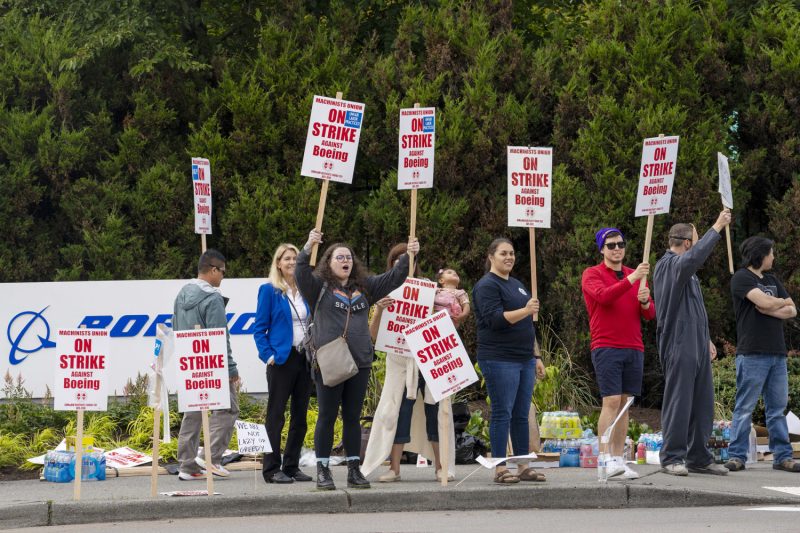
Boeing Hits Pause on Hiring Amid Cost-Cutting Blitz in Face of Factory Worker Strike
Boeing Freezes Hiring in Sweeping Cost Cuts: Analysis and Implications
The recent decision by Boeing to freeze hiring as part of its cost-cutting measures in response to a factory worker strike has sent shockwaves across the aviation industry. This move comes at a time when the aerospace giant continues to face challenges due to the ongoing disruptions caused by the global pandemic and labor disputes. In this article, we will delve into the implications of Boeing’s decision to halt new hires and explore the potential impacts on its workforce, operations, and future outlook.
The unprecedented decision to freeze hiring by Boeing reflects the company’s urgent need to rein in costs amid a protracted period of financial uncertainty. With the aerospace industry grappling with reduced demand for commercial planes, Boeing has been forced to take drastic measures to streamline its operations and preserve cash flow. By halting new hires, Boeing aims to control its labor expenses and prioritize the allocation of resources towards resolving the current challenges it faces.
One immediate impact of Boeing’s hiring freeze is likely to be felt by prospective job seekers and recent graduates looking to enter the aerospace industry. With opportunities for employment at Boeing now restricted, many individuals may need to reconsider their career plans or explore alternative avenues within the industry. The freeze on hiring also raises concerns about the long-term implications for the company’s talent pipeline and its ability to attract and retain top talent in the future.
From an operational perspective, the decision to halt new hires could potentially strain Boeing’s existing workforce as they are tasked with maintaining production levels and fulfilling orders amidst ongoing labor disputes. The increased workload on current employees may lead to burnout, reduced productivity, and potential quality control issues, which could further impact Boeing’s reputation and competitiveness in the market. Managing the workforce effectively during this challenging period will be crucial for Boeing to navigate through these turbulent times successfully.
Furthermore, the freeze on hiring may have broader implications for Boeing’s growth and innovation prospects in the long run. By limiting its ability to bring in fresh talent and expertise, Boeing risks falling behind competitors who continue to invest in recruiting and developing new skills within their organizations. In an industry as dynamic and technology-driven as aerospace, maintaining a highly skilled and diverse workforce is essential for driving innovation, adapting to market changes, and staying ahead of the curve.
In conclusion, Boeing’s decision to freeze hiring as part of its cost-cutting measures represents a strategic move aimed at addressing the immediate financial challenges facing the company. However, the implications of this decision are far-reaching and may impact various aspects of Boeing’s business, including its workforce, operations, and competitive position in the industry. As Boeing navigates through these turbulent times, it will be essential for the company to strike a delicate balance between managing costs and preserving its long-term growth and innovation capabilities. Only time will tell how this decision shapes the future trajectory of one of the world’s leading aerospace manufacturers.
